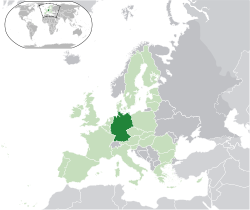Calls Grow In Germany For Return Of Balkan Visas
By Sinisa Jakov Marusic
The head of Germany’s Association of Towns and Municipalities said the number of Serbian and Macedonian asylum seekers rose by 140 per cent in 2012 compared to 2011, putting services under strain.
Gerd Landsberg said they “already have difficulties in places in providing the necessary accommodations”.

In October alone, 2,700 people from Serbia and 1,300 from Macedonia applied for asylum in Germany, Landsberg said, adding that “the trend [of new arrivals] is still rising”.
He urged the re-installment of a visa regime for these countries and also called for faster German procedures to return asylum seekers lasting no more than three weeks.
“Leaflets [in the Balkans] are promoting travel to Germany to spend the winter here,” he complained.
In December 2009, the European Union lifted visa requirements on Serbia, Macedonia and Montenegro, allowing their citizens to travel freely into the EU’s so-called Schengen zone.
Since then, Serbia and Macedonia have received complaints about mass arrivals of asylum-seekers, mainly ethnic Albanians and Roma, filing applications in Germany, Sweden, Belgium and other European countries.
Earlier this month, the EU Justice and Home Affairs Commissioner, Cecilia Malmstrom, called on Balkan states to cut the number of asylum seekers, noting that the numbers this year were on the rise.
Most leave the Balkans for economic reasons. Almost all are denied refugee status since the EU does not list poverty as a legitimate reason for claiming asylum.
